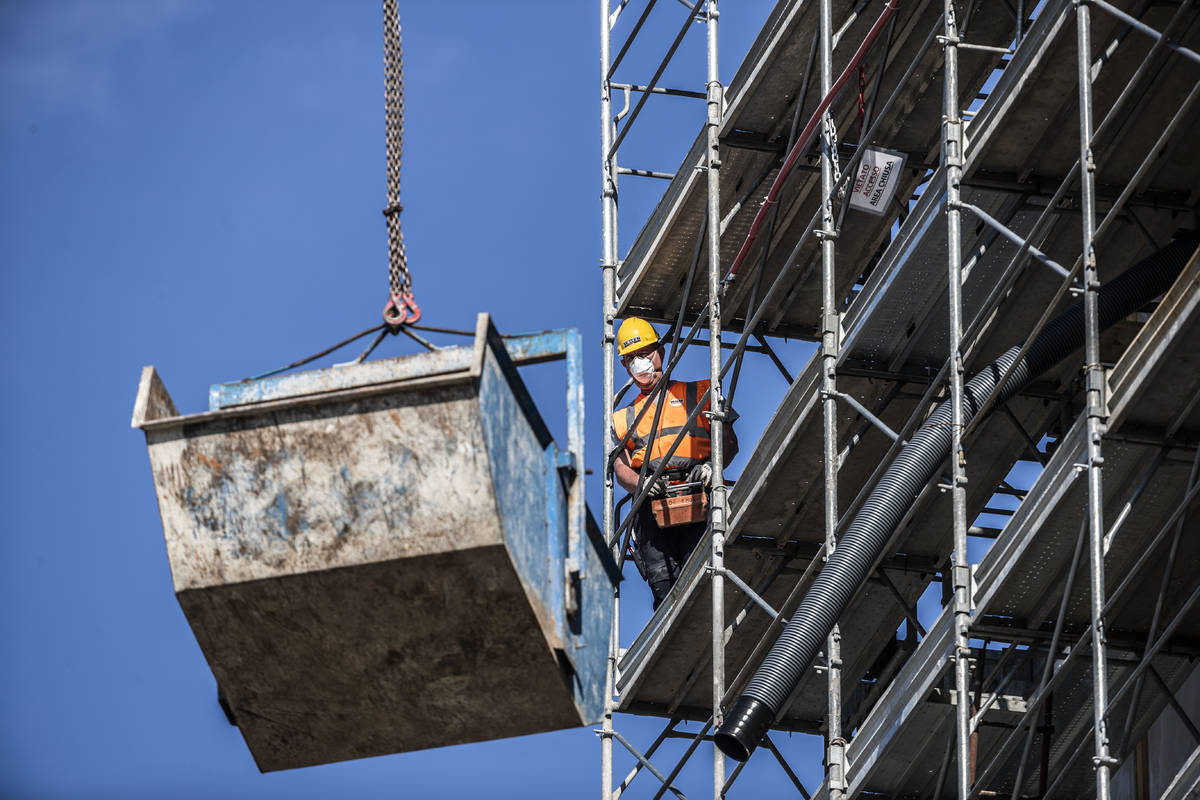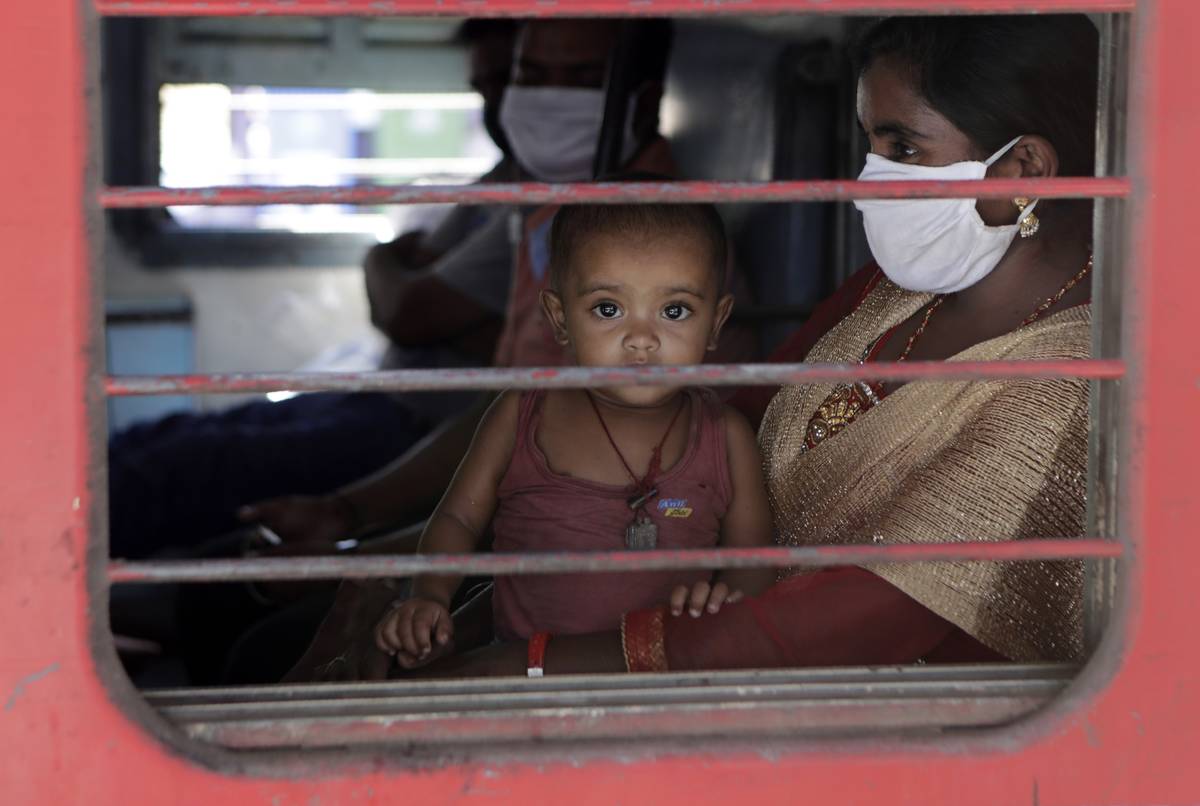Divisions widen in many nations, states as virus lockdowns ease
LONDON — Regional and political fractures are emerging in many nations over how fast to lift the lid on the coronavirus lockdowns, as worries about economic devastation collide with fears of a second wave of deaths.
French mayors are resisting the government’s call to reopen schools, while Italian governors want Rome to ease lockdown measures faster. As the British government looks to reopen the economy, Scottish leader Nicola Sturgeon has warned that acting too fast could let the virus wreak havoc again.
“Any significant easing up of restrictions at this stage would be very, very risky indeed,” Sturgeon said Thursday.
The economic damage across the globe was felt keenly in the United States, where nearly 3.2 million laid-off workers applied for unemployment benefits last week, bringing the running total over the past seven weeks to 33.5 million.
Roughly 33.5 million people have now filed for jobless aid in the seven weeks since the lockdowns began.
What’s happening today
— The Trump administration has shelved a 17-page report by federal experts that was supposed to help faith leaders, business owners and state officials as they begin to reopen public places. An official at the Centers for Disease Control and Prevention tells The Associated Press that it was supposed to be published last Friday. The administration has been closely controlling the release of guidance during a pandemic that scientists are still trying to understand.
— Buffets, salad bars and shared bread baskets would be out. Meals could arrive from food servers sheathed in face masks. California restaurants have drafted a plan to allow the industry to reopen for sit-down dining with safeguards. It avoids requiring customers to have their temperature taken or that the number of tables be dramatically limited.
— The decision to wear a mask in public is becoming a political statement, a moment to pick sides in a culture war over containing the coronavirus. The mask is increasingly a visual shorthand for a debate pitting those willing to follow health officials’ guidance against those who feel it violates their freedom. “Even if it’s going to help protect them, people don’t want the government telling them what to do,” a professor says.
— Freshly dug graves have been filling up quickly for weeks with the bodies of Brazilians killed by COVID-19. The country’s first lockdown was not ordered until this week, when there were already more than 7,000 deaths. President Jair Bolsonaro has railed against business shutdowns as more harmful than the virus itself.
UK plans ‘very limited’ easing of lockdown
The British government says people should expect only a “very limited” easing of lockdown restrictions when Prime Minister Boris Johnson announces new steps in the country’s coronavirus response on Sunday.
Johnson is to make a statement to the country laying out plans for “phase two” of the outbreak, with some measures taking effect as soon as Monday.
But Johnson spokesman James Slack said “any easement to the guidelines next week will be very limited. We are at a critical moment in the fight against the virus.”
Johnson told Cabinet colleagues on Thursday that the government would “advance with maximum caution” to avoid a new spike in virus cases.
300 French mayors want school reopening delayed
In France, more than 300 mayors in the Paris region have urged President Emmanuel Macron to delay the reopening of schools, set for Monday. Many mayors around the country have already refused to reopen schools, and many parents will keep their children home even where they are functioning again.
The mayors called the timing “untenable and unrealistic,” saying they were put on a “forced march” to get schools ready without enough staff or equipment. They complained that the government guidelines were too vague and slow in coming.
But governments are also under pressure to reopen faster and kick-start economies that have been plunged into hibernation.
Italian regional governors are pressing to open shops and restaurants, just days after the country began easing its two-month lockdown by allowing 4.5 million people to return to work in offices and factories.
Governors want to be allowed to present their own plans for reopening, tailored to the rate of infection and economic needs of their regions.
After an outcry from the nation’s Roman Catholic bishops, Italian Premier Giuseppe Conte announced that public Masses will be allowed to resume on May 18.
Spanish leaders losing support
In Spain, support for the government is crumbling after seven weeks of a strict lockdown, with some regions and opposition parties demanding an end to the state of emergency declared on March 14. The government argues that it is far too soon.
Some of Germany’s 16 powerful state governments are more impatient than others to open up businesses such as restaurants and hotels. At a meeting Wednesday with Chancellor Angela Merkel, it was agreed that state leaders would have wide leeway to decide when to open more sectors of the economy. They also will have to reimpose restrictions locally if infections rebound.
Putin moves choice to regions
In Russia, where the number of new infections is growing fast, President Vladimir Putin delegated the enforcement of lockdowns and other restrictions to regional governments, leading to wide variations across the country.
Mikhail Vinogradov, head of the St. Petersburg Politics think tank, told the Vedomosti newspaper that the Moscow government is sending mixed messages that governors find hard to decipher — wanting a victory over the virus, while also encouraging easing of the lockdown.
US differences
Fractures are also evident in the U.S., where about half of the 50 states are easing their shutdowns, to the alarm of public health officials.
Many states have not put in place the robust testing and contact tracing that experts believe is necessary to detect and contain new outbreaks. And many governors have pressed ahead with reopening before their states met one of the key benchmarks in the Trump administration’s guidelines for reopening — a 14-day downward trajectory in new infections.
“If we relax these measures without having the proper public health safeguards in place, we can expect many more cases and, unfortunately, more deaths,” said Josh Michaud, associate director of global health policy with the Kaiser Family Foundation in Washington.
Researchers recently doubled their projection of deaths in the U.S. to about 134,000 through early August. So far the U.S. has recorded over 70,000 deaths and 1.2 million confirmed infections.
Worldwide, the virus has infected more than 3.6 million people and killed over a quarter-million, according to a Johns Hopkins University tally, which experts agree understates the dimensions of the pandemic because of limited testing, differences in counting the dead and concealment by some governments.
Only 2 new cases in China
China, where the virus emerged late last year, reported just two new cases on Thursday, both from overseas, and said the whole country now is at low risk of further infections. The country has reported no new deaths from COVID-19 in more than three weeks.
China also fired back against claims by U.S. Secretary of State Mike Pompeo that there is “enormous evidence” that the coronavirus originated in a Chinese laboratory. Foreign Ministry spokesman Hua Chunying accused Pompeo of “making up lies and covering up a lie by fabricating more lies.”
Strict social distancing also appears to have vanquished the outbreak in New Zealand, where Prime Minister Jacinda Ardern is mulling plans to relax the lockdown by allowing gatherings of up to 100 people and holding professional sports events without spectators.
But Ardern called for vigilance.
“We think of ourselves as halfway down Everest,” she said. “I think it’s clear that no one wants to hike back up that peak.”





















